Fleurs du Mal Magazine


Or see the index
Lyrics and never-before-seen poetry and sketches from the iconic musician of Florence and the Machine
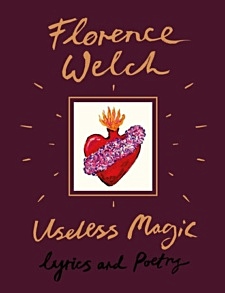 Songs can be incredibly prophetic, like subconscious warnings or messages to myself, but I often don’t know what I’m trying to say till years later.
Songs can be incredibly prophetic, like subconscious warnings or messages to myself, but I often don’t know what I’m trying to say till years later.
Or a prediction comes true and I couldn’t do anything to stop it, so it seems like a kind of useless magic.
Since forming Florence + The Machine in 2007, Florence Welch has written three albums, Lungs, Ceremonials, and How Big How Blue How Beautiful, all of which have been chart toppers all over the world, and she has been nominated and has won numerous international awards.
Useless Magic
Lyrics and Poetry
By Florence Welch
Hardcover
Publ. Jul 10, 2018
288 Pages
$35.00
Published by Crown Archetype
ISBN 9780525577157
new books
fleursdumal.nl magazine
More in: #Editors Choice Archiv, Archive W-X, Art & Literature News, Florence Welch
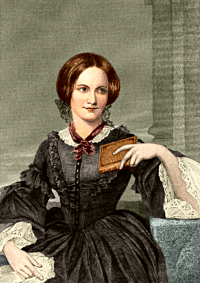
Presentiment
“Sister, you’ve sat there all the day,
Come to the hearth awhile;
The wind so wildly sweeps away,
The clouds so darkly pile.
That open book has lain, unread,
For hours upon your knee;
You’ve never smiled nor turned your head;
What can you, sister, see?”
“Come hither, Jane, look down the field;
How dense a mist creeps on!
The path, the hedge, are both concealed,
Ev’n the white gate is gone
No landscape through the fog I trace,
No hill with pastures green;
All featureless is Nature’s face.
All masked in clouds her mien.
“Scarce is the rustle of a leaf
Heard in our garden now;
The year grows old, its days wax brief,
The tresses leave its brow.
The rain drives fast before the wind,
The sky is blank and grey;
O Jane, what sadness fills the mind
On such a dreary day!”
“You think too much, my sister dear;
You sit too long alone;
What though November days be drear?
Full soon will they be gone.
I’ve swept the hearth, and placed your chair,.
Come, Emma, sit by me;
Our own fireside is never drear,
Though late and wintry wane the year,
Though rough the night may be.”
“The peaceful glow of our fireside
Imparts no peace to me:
My thoughts would rather wander wide
Than rest, dear Jane, with thee.
I’m on a distant journey bound,
And if, about my heart,
Too closely kindred ties were bound,
‘Twould break when forced to part.
“‘Soon will November days be o’er:’
Well have you spoken, Jane:
My own forebodings tell me more–
For me, I know by presage sure,
They’ll ne’er return again.
Ere long, nor sun nor storm to me
Will bring or joy or gloom;
They reach not that Eternity
Which soon will be my home.”
Eight months are gone, the summer sun
Sets in a glorious sky;
A quiet field, all green and lone,
Receives its rosy dye.
Jane sits upon a shaded stile,
Alone she sits there now;
Her head rests on her hand the while,
And thought o’ercasts her brow.
She’s thinking of one winter’s day,
A few short months ago,
Then Emma’s bier was borne away
O’er wastes of frozen snow.
She’s thinking how that drifted snow
Dissolved in spring’s first gleam,
And how her sister’s memory now
Fades, even as fades a dream.
The snow will whiten earth again,
But Emma comes no more;
She left, ‘mid winter’s sleet and rain,
This world for Heaven’s far shore.
On Beulah’s hills she wanders now,
On Eden’s tranquil plain;
To her shall Jane hereafter go,
She ne’er shall come to Jane!
Charlotte Brontë
(1816-1855)
poetry
fleursdumal.nl magazine
More in: Archive A-B, Archive A-B, Brontë, Anne, Emily & Charlotte

My Last Duchess
That’s my last Duchess painted on the wall,
Looking as if she were alive. I call
That piece a wonder, now : Frà Pandolf’s hands
Worked busily a day, and there she stands.
Will’t please you sit and look at her ? I said
‘Frà Pandolf’ by design, for never read
Strangers like you that pictured countenance,
The depth and passion of its earnest glance,
But to myself they turned (since none puts by
The curtain I have drawn for you, but I)
And seemed as they would ask me, if they durst,
How such a glance came there ; so, not the first
Are you to turn and ask thus. Sir, ’t was not
Her husband’s presence only, called that spot
Of joy into the Duchess’ cheek : perhaps
Frà Pandolf chanced to say ‘Her mantle laps
Over my lady’s wrist too much,’ or ‘Paint
Must never hope to reproduce the faint
Half-flush that dies along her throat :’ such stuff
Was courtesy, she thought, and cause enough
For calling up that spot of joy. She had
A heart―how shall I say ?―too soon made glad,
Too easily impressed ; she liked whate’er
She looked on, and her looks went everywhere.
Sir, ’t was all one! My favour at her breast,
The dropping of the daylight in the West,
The bough of cherries some officious fool
Broke in the orchard for her, the white mule
She rode with round the terrace―all and each
Would draw from her alike the approving speech,
Or blush, at least. She thanked men,―good! but thanked
Somehow―I know not how―as if she ranked
My gift of a nine-hundred-years-old name
With anybody’s gift. Who’d stoop to blame
This sort of trifling? Even had you skill
In speech―(which I have not)―to make your will
Quite clear to such an one, and say, ‘Just this
Or that in you disgusts me ; here you miss,
Or there exceed the mark’―and if she let
Herself be lessoned so, nor plainly set
Her wits to yours, forsooth, and made excuse,
―E’en then would be some stooping ; and I choose
Never to stoop. Of sir, she smiled, no doubt,
Whene’er I passed her ; but who passed without
Much the same smile? This grew ; I gave commands ;
Then all smiles stopped together. There she stands
As if alive. Will’t please you rise ? We’ll meet
The company below, then. I repeat,
The Count your master’s known munificence
Is ample warrant that no just pretence
Of mine for dowry will be disallowed ;
Though his fair daughter’s self, as I avowed
At starting, is my object. Nay, we’ll go
Together down, sir. Notice Neptune, though,
Taming a sea-horse, thought a rarity,
Which Claus of Innsbruck cast in bronze for me!
Robert Browning (1812 – 1889)
My Last Duchess
fleursdumal.nl magazine
More in: Archive A-B, Browning, Robert
Osip Mandelstam is one of the greatest of twentieth-century poets and Voronezh Notebooks, a sequence of poems composed between 1935 and 1937 when he was living in internal exile in the Soviet city of Voronezh, is his last and most exploratory work.
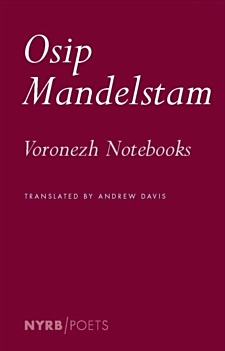 Meditating on death and survival, on power and poetry, on marriage, madness, friendship, and memory, challenging Stalin between lines that are full of the sights and sounds of the steppes, blue sky and black earth, the roads, winter breath, spring with its birds and flowers and bees, the notebooks are a continual improvisation and an unapologetic affirmation of poetry as life.
Meditating on death and survival, on power and poetry, on marriage, madness, friendship, and memory, challenging Stalin between lines that are full of the sights and sounds of the steppes, blue sky and black earth, the roads, winter breath, spring with its birds and flowers and bees, the notebooks are a continual improvisation and an unapologetic affirmation of poetry as life.
Russia’s greatest poet in this century. — Joseph Brodsky
Mandelstam was a tragic figure. Even while in exile in Voronej, he wrote works of untold beauty and power. And he had no poetic forerunners… In all of world poetry, I know of no other such case. We know the sources of Pushkin and Blok, but who will tell us from where that new, divine harmony, Mandelstam’s poetry, came from? — Anna Akhmatova
Voronezh Notebooks by Osip Mandelstam,
translated from the Russian and with an introduction by Andrew Davis
ISBN: 9781590179109
Pages: 128
Publication Date: January 5, 2016
Series: NYRB Poets
The New York Review of Books
Paperback
Books That Everyone Should Read
fleursdumal.nl magazine
More in: - Book Lovers, - Book Stories, Achmatova, Anna, Archive M-N, Brodsky, Joseph, Mandelstam, Osip, REPRESSION OF WRITERS, JOURNALISTS & ARTISTS, TRANSLATION ARCHIVE
Old Angel Midnight is a treasure trove of Kerouac’s experiments with automatic writing, a method he practiced constantly to sharpen his imaginative reflexes.
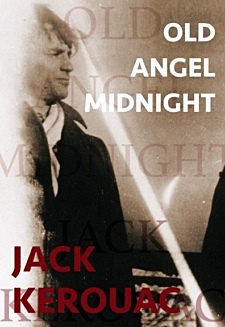 Recorded in a series of notebooks between 1956-1959, what Kerouac called his “endless automatic writing piece” began while he shared a cabin with poet Gary Snyder. Kerouac tried to emulate Snyder’s daily Buddhist meditation discipline, using the technique of “letting go” to free his mind for pure spontaneous writing, annotating the stream of words flowing through his consciousness in response to auditory stimuli and his own mental images.
Recorded in a series of notebooks between 1956-1959, what Kerouac called his “endless automatic writing piece” began while he shared a cabin with poet Gary Snyder. Kerouac tried to emulate Snyder’s daily Buddhist meditation discipline, using the technique of “letting go” to free his mind for pure spontaneous writing, annotating the stream of words flowing through his consciousness in response to auditory stimuli and his own mental images.
Kerouac continued his exercise in spontaneous composition over the next three years, including a period spent with William Burroughs in Tangiers. He made no revisions to the automatic writing entries in his notebooks, which were collected and transcribed for publication as originally written.
Old Angel Midnight attests to the success of Kerouac’s experiment and bears witness to his commitment to his craft, and to the pleasure he takes in writing: “I like the bliss of mind.”
Jack Kerouac (1922-1969) was a principal actor in the Beat Generation, a companion of Allen Ginsberg and Neal Cassady in that great adventure. His books include On the Road, The Dharma Bums, Mexico City Blues, Lonesome Traveler, Visions of Cody, Pomes All Sizes (City Lights), Scattered Poems (City Lights), and Scripture of the Golden Eternity (City Lights).
Title Old Angel Midnight
Author Jack Kerouac
Preface by Ann Charters, Michael McClure
Collection City Lights/Grey Fox
Publisher City Lights Publishers
Poetry
Published 2016
Format Paperback
ISBN-10 087286703X
ISBN-13 9780872867031
94 pages
List Price $13.95
Books That Everyone Should Read
fleursdumal.nl magazine
More in: #Beat Generation Archives, *Archive Les Poètes Maudits, - Book Stories, Archive K-L, DRUGS & DISEASE & MEDICINE & LITERATURE, Kerouac, Jack, Opium-Eaters
The first critical edition of the complete poems of Basil Bunting (1900 – 1985), published on the fiftieth anniversary of his masterpiece, Briggflatts.
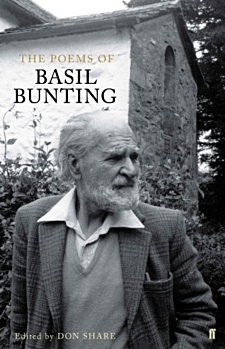 Basil Bunting is one of the most important British poets of the twentieth century, admired early on by Ezra Pound and Louis Zukofsky, and acknowledged since the 1930s as a major figure in the Modernist movement. Faber published a selection of his early work in Pound’sActive Anthology (1933), but Bunting’s reputation was not confirmed until decades later with the publication of his masterpiece, Briggflatts, by Fulcrum Press in 1966.
Basil Bunting is one of the most important British poets of the twentieth century, admired early on by Ezra Pound and Louis Zukofsky, and acknowledged since the 1930s as a major figure in the Modernist movement. Faber published a selection of his early work in Pound’sActive Anthology (1933), but Bunting’s reputation was not confirmed until decades later with the publication of his masterpiece, Briggflatts, by Fulcrum Press in 1966.
Bunting’s work was published throughout most of his life in editions from Oxford University Press, Bloodaxe Books, New Directions and various small presses. This is the first critical edition of the complete poems, and offers an accurate text with variants from all printed sources. Don Share annotates Bunting’s often complex and allusive verse, with much illuminating quotation from his prose writings, interviews and correspondence. He also examines Bunting’s sources (including Persian literature and classical mythology), and explores the Northumbrian roots of Bunting’s poetic vocabulary and use of dialect.
This important work of literary scholarship offers, for the first time, an edition commensurate with the achievement of this neglected Modernist master.
(…)
Night, float us.
Offshore wind, shout,
ask the sea
what’s lost, what’s left,
what horn sunk,
what crown adrift.
(Fragment from: Coda by Basil Bunting)
The first critical edition of the complete poems of Basil Bunting, published on the fiftieth anniversary of his masterpiece, Briggflatts. Basil Bunting is one of the most important British poets of the twentieth century, admired early on by Ezra Pound and Louis Zukofsky, and acknowledged since the 1930s as a major figure in the Modernist movement.
Faber published a selection of his early work in Pound’sActive Anthology (1933), but Bunting’s reputation was not confirmed until decades later with the publication of his masterpiece, Briggflatts, by Fulcrum Press in 1966. Bunting’s work was published throughout most of his life in editions from Oxford University Press, Bloodaxe Books, New Directions and various small presses.
This first critical edition of the complete poems offers an accurate text with variants from all printed sources. Don Share annotates Bunting’s often complex and allusive verse, with much illuminating quotation from his prose writings, interviews and correspondence. He also examines Bunting’s sources (including Persian literature and classical mythology), and explores the Northumbrian roots of Bunting’s poetic vocabulary and use of dialect.
This important work of literary scholarship offers, for the first time, an edition commensurate with the achievement of this neglected Modernist master.
The Poems of Basil Bunting
Basil Bunting
Hardcover
624 pages
Publisher: Faber & Faber
Main edition (2016)
Language: English
ISBN-10: 057123500X
ISBN-13: 978-0571235001
£30.00
Books That Everyone Should Read
fleursdumal.nl magazine
More in: - Book Stories, Archive A-B, EDITOR'S CHOICE
Osip Mandelstam visited Armenia in 1930, and during the eight months of his stay, he rediscovered his poetic voice and was inspired to write an experimental meditation on the country and its ancient culture.
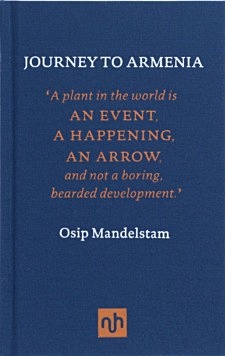 This edition also includes the companion piece, “Conversation About Dante,” which Seamus Heaney called “Osip Mandelstam’s astonishing fantasia on poetic creation.” An incomparable apologia for poetic freedom and a challenge to the Bolshevik establishment, the essay was dictated by the poet to his wife, Nadezhda Mandelstam, in 1934 and 1935, during the last phase of his itinerant life. It has close ties to the Journey to Armenia.
This edition also includes the companion piece, “Conversation About Dante,” which Seamus Heaney called “Osip Mandelstam’s astonishing fantasia on poetic creation.” An incomparable apologia for poetic freedom and a challenge to the Bolshevik establishment, the essay was dictated by the poet to his wife, Nadezhda Mandelstam, in 1934 and 1935, during the last phase of his itinerant life. It has close ties to the Journey to Armenia.
Osip Mandelstam (1891–1938) was born and raised in St. Petersburg, where he attended the prestigious Tenishev School, before studying at the universities of St. Petersburg and Heidelberg and at the Sorbonne.
Mandelstam first published his poems in Apollyon, an avant-garde magazine, in 1910, then banded together with Anna Akhmatova and Nicholas Gumilev to form the Acmeist group, which advocated an aesthetic of exact description and chiseled form, as suggested by the title of Mandelstam’s first book, Stone (1913). During the Russian Revolution, Mandelstam left Leningrad for the Crimea and Georgia, and he settled in Moscow in 1922, where his second collection of poems, Tristia, appeared.
Unpopular with the Soviet authorities, Mandelstam found it increasingly difficult to publish his poetry, though an edition of collected poems did come out in 1928. In 1934, after reading an epigram denouncing Stalin to friends, Mandelstam was arrested and sent into exile. He wrote furiously during these years, and his wife, Nadezhda, memorized his work in case his notebooks were destroyed or lost. (Nadezhda Mandelstam’s extraordinary memoirs of life with her husband, Hope Against Hope and Hope Abandoned, published in the 1970s, later helped to bring Mandelstam a worldwide audience.
Journey to Armenia by Osip Mandelstam,
introduction by Henry Gifford,
translated from the Russian by Sydney Monas, Clarence Brown, and Robert Hughes
Series: Notting Hill Editions
ISBN: 9781907903472
Pages: 192
Publication Date in Hardcover:
September 25, 2018
new books
fleursdumal.nl magazine
More in: - Book News, - Book Stories, Archive M-N, Art & Literature News, Mandelstam, Osip, REPRESSION OF WRITERS, JOURNALISTS & ARTISTS

The Twilight Turns
The twilight turns from amethyst
To deep and deeper blue,
The lamp fills with a pale green glow
The trees of the avenue.
The old piano plays an air,
Sedate and slow and gay;
She bends upon the yellow keys,
Her head inclines this way.
Shy thought and grave wide eyes and hands
That wander as they list — –
The twilight turns to darker blue
With lights of amethyst.
James Joyce
(1882-1941)
The Twilight Turns
fleursdumal.nl magazine
More in: Archive I-J, Archive I-J, Joyce, James, Joyce, James
In this book, Gerald Janecek provides a comprehensive account of Moscow Conceptualist poetry and performance, arguably the most important development in the arts of the late Soviet period and yet one underappreciated in the West.
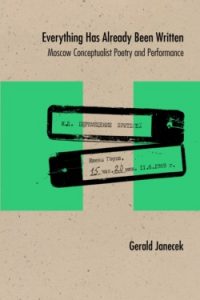 Such innovative poets as Vsevolod Nekrasov, Lev Rubinstein, and Dmitry Prigov are among the most prominent literary figures of Russia in the 1980s and 1990s, yet they are virtually unknown outside Russia. The same is true of the numerous active Russian performance art groups, especially the pioneering Collective Actions group, led by the brilliantly inventive Andrey Monastyrsky.
Such innovative poets as Vsevolod Nekrasov, Lev Rubinstein, and Dmitry Prigov are among the most prominent literary figures of Russia in the 1980s and 1990s, yet they are virtually unknown outside Russia. The same is true of the numerous active Russian performance art groups, especially the pioneering Collective Actions group, led by the brilliantly inventive Andrey Monastyrsky.
Everything Has Already Been Written strives to make Moscow Conceptualism more accessible, to break the language barrier and to foster understanding among an international readership by thoroughly discussing a broad range of specific works and theories. Janecek’s study is the first comprehensive analysis of Moscow Conceptualist poetry and theory, vital for an understanding of Russian culture in the post-Conceptualist era.
Gerald Janecek is professor emeritus of Russian and Eastern Studies at the University of Kentucky. He is the author of The Look of Russian Literature: Avant-Garde Visual Experiments, 1900-1930; ZAUM: The Transrational Poetry of Russian Futurism; and Sight and Sound Entwined: Studies of the New Russian Poetry.
Gerald Janecek (Author)
Everything Has Already Been Written
Moscow Conceptualist Poetry and Performance
Paper Text – $39.95
ISBN 978-0-8101-3901-5
Cloth Text – $120.00
ISBN 978-0-8101-3902-2
Publication Date: December 2018
Series: Studies in Russian Literature and Theory
Literature & Criticism
Russia Drama & Performance Studies
Page Count 312 pages
Northwestern University Press
new books
fleursdumal.nl magazine
More in: #More Poetry Archives, - Book News, - Bookstores, Archive I-J, Art & Literature News, Conceptual writing, EXPERIMENTAL POETRY, FLUXUS LEGACY, Performing arts, Visual & Concrete Poetry

Zimmermädchen
Die Zimmermädchen der Hotels,
Die meine Betten schlagen und dann glätten,
Ach wenn sie doch ein wenig Ahnung hätten
Vom Unterschiede zwischen Polster und Fels.
Ach wüßtet ihr, wie süß ihr für mich ausseht
Im Arbeitskleid, ihr Engel der Hotels!
Wenn wirklich eine heimlich mit mir ausgeht,
Dann trägt sie Seide und trägt sogar Pelz,
Sei’s auch nur Wunderwandlung Hasenfells.
Dann im Café krümmt ihr beim Tasseheben
Den kleinen, roten Finger nach Manier.
Und du merkst nicht, wie gern ich doch mit dir
Oft eine Stunde möchte unmanierlich leben.
Und würde dann – nebst Geld – als Souvenir
Ein schließend, stilles, zartes Streicheln geben.
Und würdet ihr dies Streicheln doch nicht spüren.
Denn ihr bedient nur Nummern an den Türen.
Und wenn sie schlichte Ehre eng verschließen,
Dann dienen sie, da andere genießen.
Hab ich euch tausendmal in Korridoren
Heiß zugesehn und heiser angesehn,
Was ich erträumte, war voraus verloren.
Denn meine Liebe könnt ihr nicht verstehn.
Joachim Ringelnatz
(1883 – 1934)
Zimmermädchen
fleursdumal.nl magazine
More in: Archive Q-R, Joachim Ringelnatz, LIGHT VERSE
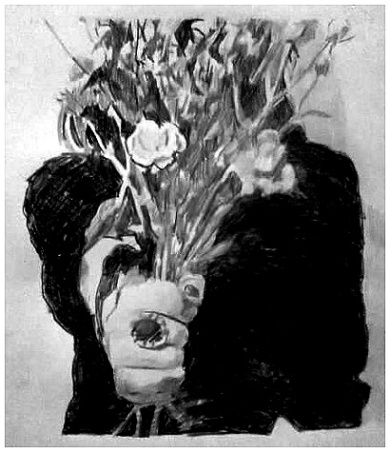
Vincent Berquez©: Nr. 37
Vincent Berquez is a London–based artist and poet
fleursdumal.nl magazine for art & literature
More in: Berquez, Vincent, FDM Art Gallery, Vincent Berquez
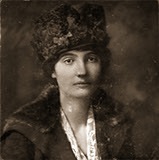
The Actor-Soldier
On the grass I m lying,
My blanket is the sky ;
This feeling is called dying.
No one will testify
They saw me suffer this ;
There s no one passing by.
The wonder of it is,
I m by myself at last
With plain realities.
No one is here to cast
A part for me to play ;
My term of life is past.
No one is here to see
How I can meet and take
This end ; how gallantly
Though the ice that binds a lake
Must weigh less heavily
Than Death to my soul awake.
Gladys Cromwell
(1885-1919)
The Actor-Soldier
fleursdumal.nl magazine
More in: Archive C-D, Cromwell, Gladys, Gladys Cromwell
Thank you for reading Fleurs du Mal - magazine for art & literature